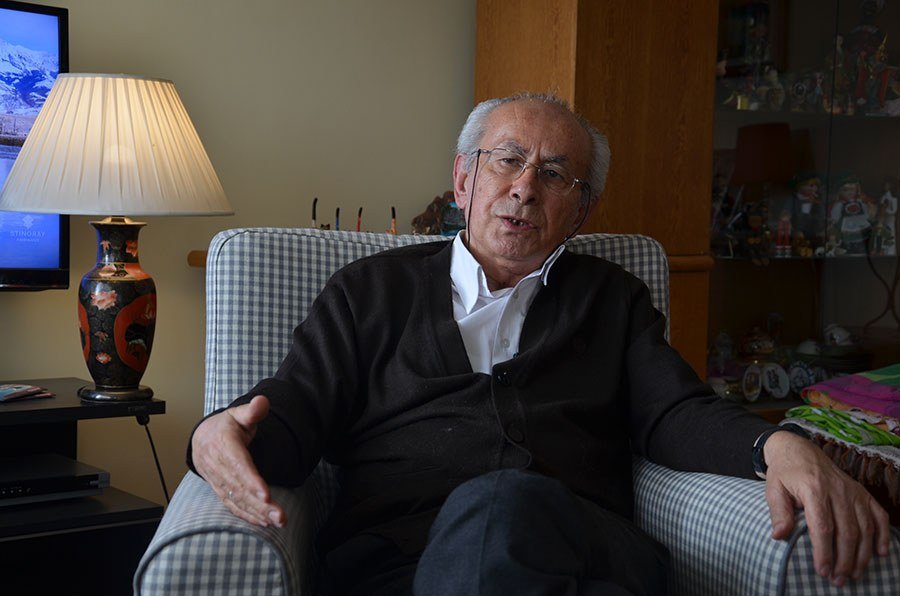Turkey: Drop charges against writer and academic Fikret Başkaya
Turkish writer and academic Fikret Başkaya
Update - 22 November 2019
On 22 November 2019, Ankara’s 21st Heavy Crimes Court acquitted Fikret Başkaya of all charges. PEN International welcomes the verdict and thanks all those who sent appeals. The organisation further urges the Turkish authorities to release all those imprisoned for peacefully expressing their views.
The Turkish authorities must drop all charges against Fikret Başkaya, PEN International said today, as the prominent writer and academic is facing a lengthy prison sentence on trumped-up terrorism charges. A verdict is expected to be announced at his next trial hearing on 22 November 2019.
An internationally renowned writer, academic and human rights defender who has been fighting for freedom of expression in Turkey for decades, Fikret Başkaya was briefly detained on 27 November 2017 and subsequently charged in February 2019 with ‘making propaganda for a terrorist organisation’ under Article 7/2 of Turkey’s Anti-Terrorism Law. The charges stem from an article published in November 2016, entitled The Real Terrorism is State Terrorism, in which he notably refers to Turkey’s Kurdish population suffering at the hands of the authorities. His next trial hearing is set to take place in Ankara’s 21st Heavy Crimes Court on 22 November 2019, when a verdict is expected to be announced. He faces up to five years in prison if convicted.
‘Once again, the Turkish authorities are using overbroad counter-terrorism laws to punish dissenting opinion. Fikret Başkaya’s article cannot in any way be read as terrorism propaganda. As sham criminal proceedings are set to conclude, we call on the Turkish authorities to drop all charges against Başkaya. No one should be sent to prison for peacefully expressing their views,’ said Salil Tripathi, Chair of PEN International’s Writers in Prison Committee.
The Turkish authorities have repeatedly targeted Fikret Başkaya throughout the years. He spent 20 months in prison in 1994 and 1995 on terror-related charges for his book Westernisation, Modernisation and Development: The Bankruptcy of a Paradigm, in which he uses Turkey’s Kurdish population as a case study. In 2000, he was sentenced to 16 months in prison – reduced to one year on appeal – for an article in which he questioned the viability of the Turkish authorities’ approach towards the Kurds following the arrest of the Kurdistan Workers Party (PKK) leader Abdullah Öcalan. In 2004, he faced up to three years in prison for ‘insult to the State, State institutions, and the military’ for a series of articles he wrote in the early nineties and later republished as a book; he was eventually acquitted in 2005.
‘The Turkish authorities’ harassment of Fikret Başkaya has been ongoing for decades, notably relying on problematic counter-terrorism and defamation laws to target him. We urge the authorities to uphold Başkaya’s right to free expression once and for all. We further call on them to decriminalise defamation and align Turkey’s counter-terrorism laws with international standards,’ added Salil Tripathi.
Additional information
Fikret Baskaya, 79, is the author of several books and articles on development economics. He is a professor of economic development and international relations, and president of the Özgür Üniversite (Free University) in Istanbul, which he co-founded. His persecution saw him become an honorary member of several PEN Centres. He was awarded the 2003 Turkish Publishers Association’s Freedom of Expression Award.
For more information about the state of freedom of expression in Turkey, and how the Turkish authorities are using counter-terrorism laws to target dissenting views, please click here.
For further details contact Aurélia Dondo at PEN International, Koops Mill, 162-164 Abbey Street, London, SE1 2AN, UK Tel: +44 (0) 20 7405 0338 Fax +44 (0) 20 7405 0339 e-mail: [email protected]

